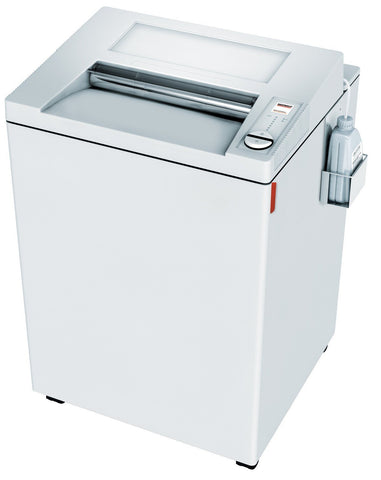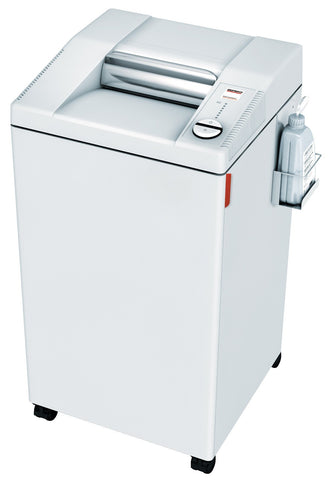Want your company in the headlines for all the wrong reasons?
Of course not, but security breaches are on the rise and often make the news. More companies are taking security seriously now that they've seen the consequences.
Not sure how to keep your office secure? Read on for 8 office management tips to maximize security.
Train Staff
Good security starts with your staff. Your building and computer networks won't keep themselves secure - only an educated workforce can do that.
Train all new staff on your security policies during their on-boarding process. That way, it's one of the first things they learn about, which helps highlight its importance.
Keep your policies simple so your staff knows the procedures. Give them clear methods for reporting security issues. Empower your staff and give them the confidence to police office security.
It's vital to refresh this training often. Making it available as e-learning that employees can freely access may help them stay up to date.
Install Secure Locks
Restricting access to certain areas is one of the simplest security office management tips. But it's also very effective.
Even if you're a public-facing office, consider adding an entry buzzer. That way staff can vet visitors to the building and keep track of them.
Further protect your inner office by adding keypads or a fob-activated keyless system. Limit unescorted access to your reception area only - this could be a manned or unmanned area, so long as it restricts access to the rest of the building.
You don't need security keypads on every door. Yet adding them to a few key choke-points can boost your office security significantly.
Shred Paperwork
Misplaced paperwork could hold everything from customer data to your financial records. It's vital you dispose of old paperwork correctly.
There are two main approaches to disposing of paperwork.
First, you can shred paperwork in-house. You'll need to provide your staff with appropriate shredders. If you rely heavily on paperwork, invest in a higher-grade shredder that's up to the task.
Secondly, you could contract a company to destroy your paperwork for you. They'll usually provide a secure console for employees to deposit documents. Periodically, they'll collect paperwork from this console and take it off-site for secure disposal.
Shredding is often viewed as a low-priority task, so a shredding console ensures secure document disposal isn't a chore for your staff. However, it does carry the risk of secure documents moving off-site.
Promote Awareness
Social engineering is a kind of con that involves tricking people into allowing access to secure areas.
Physical intruders in your office may use social engineering to bypass reception areas and access non-public areas of your business. This could be as simple as wearing a courier uniform.
To combat social engineering, train your staff to ask questions. Many people turn a blind eye by default and expect someone else to investigate visitors. But politely questioning the intention of strangers is key to ensuring a more secure building.
Your staff should have some form of ID they can present when questioned. This quickly sifts out potential intruders. But if you don't have ID, even a delicate query could be enough to deter someone who's relying on lax security.
Keep Desks Clean
A clear desk policy comes up often in a list of office management tips, and for good reason. Clean desks keep the office tidy, reduce fire risk, and increase office security.
Offices are often accessible to non-company staff. Even if you're not customer-facing, cleaning staff or your landlord may still pass through. Paperwork left out on desks is vulnerable to snooping and theft.
Ensure your staff clear away any paperwork not currently in use. That can be hard to enforce, so many companies have a policy that desks should be totally clear of paperwork at the end of each day.
Give your staff somewhere to securely store paperwork. This could be inside a desk or filing cabinet. Whatever it is, it should be lockable.
Keep Software Up to Date
Cybersecurity has hit the headlines hard. Companies are slowly waking up to the threat it poses.
Neglecting your cybersecurity could leave you with a shattered reputation and a huge fine.
No network is perfectly secure. But if there's one thing experts stress over and over again, it's to keep your software up to date.
Software manufacturers update their programs to plug vulnerabilities and incorporate the latest security technology. It's a constant arms race with would-be hackers.
If you don't keep your software up to date, you're leaving the door unlocked for hackers to access your systems.
Configure your software for automatic updates and pay attention to any headlines that could indicate vulnerabilities in your systems. Ensure you're working on current operating systems, as many older operating systems are no longer supported with security patches.
Use Strong Passwords
Keeping software up to date defends against technical hacking feats. But sometimes hacking is a case of brute force or social engineering.
Teach your staff about strong passwords. These should be 100% unique for each passworded system. They shouldn't use obvious ties to the user, like birth dates.
There's a human struggle between strong passwords and memorable ones. But frequent refreshers like training sessions and emails reminders will stress the importance of secure passwords.
Limit Access
Another IT security tip is to limit access to those who need it.
Try to segregate your permissions where possible. Your finance team may not need to see customer details. Your customer service team probably don't need to see accounts and procurement data.
This reduces the statistical likelihood of a data breach. But it also makes breaches easier to trace when they do occur.
It also makes security training easier. You can train each team on the exact processes for their work, without overloading them with irrelevant data.
Simple & Effective Office Management Tips
The key to good security is to plan out the basics and keep your processes simple. If you make things too complicated, your staff won't be able to keep up. Put simple procedures in place and you can have a secure office without impacting productivity.
Need more office management tips? Be sure to follow our blog!




